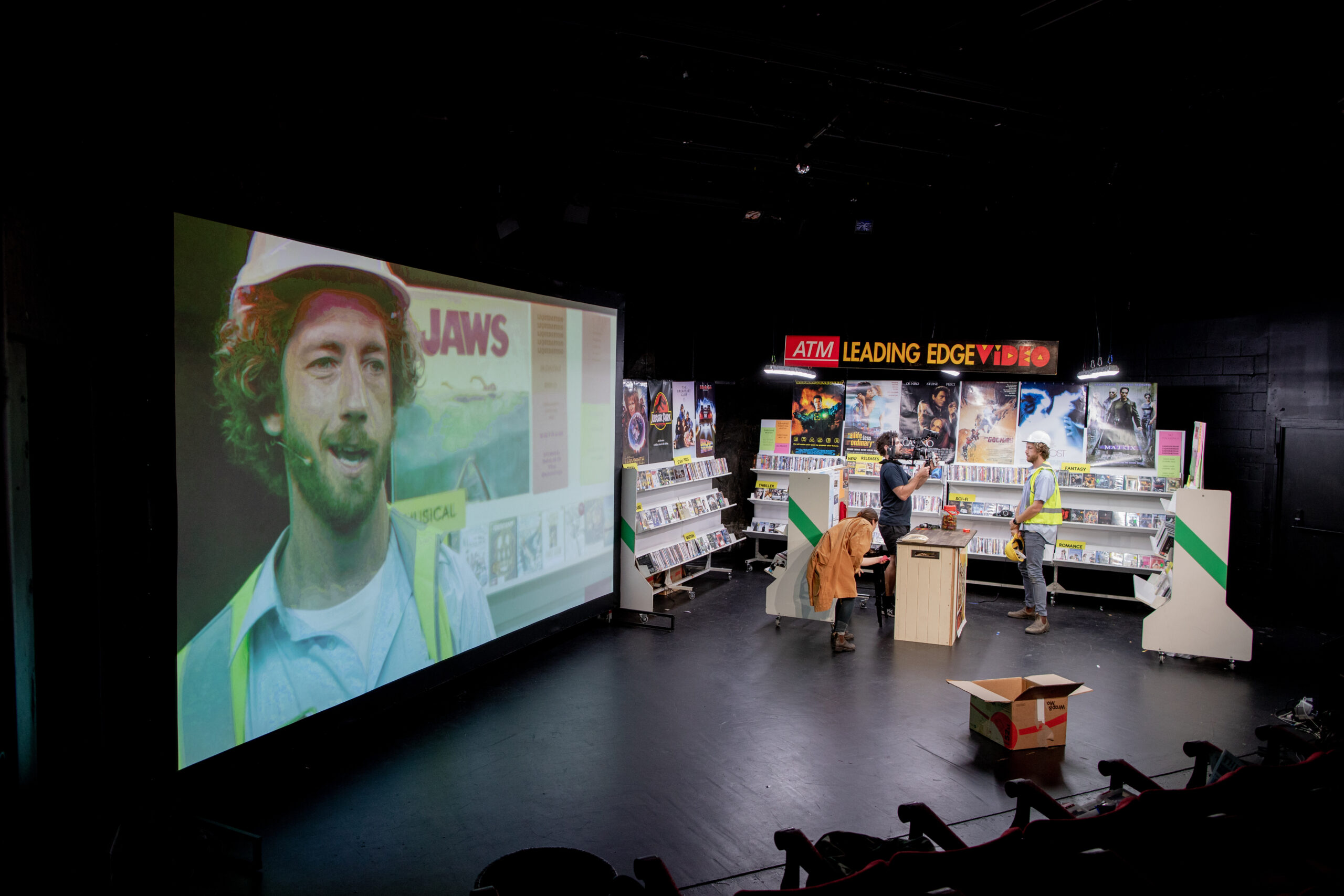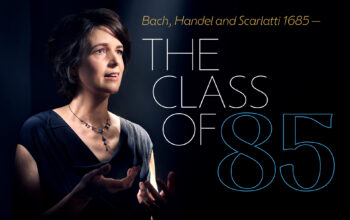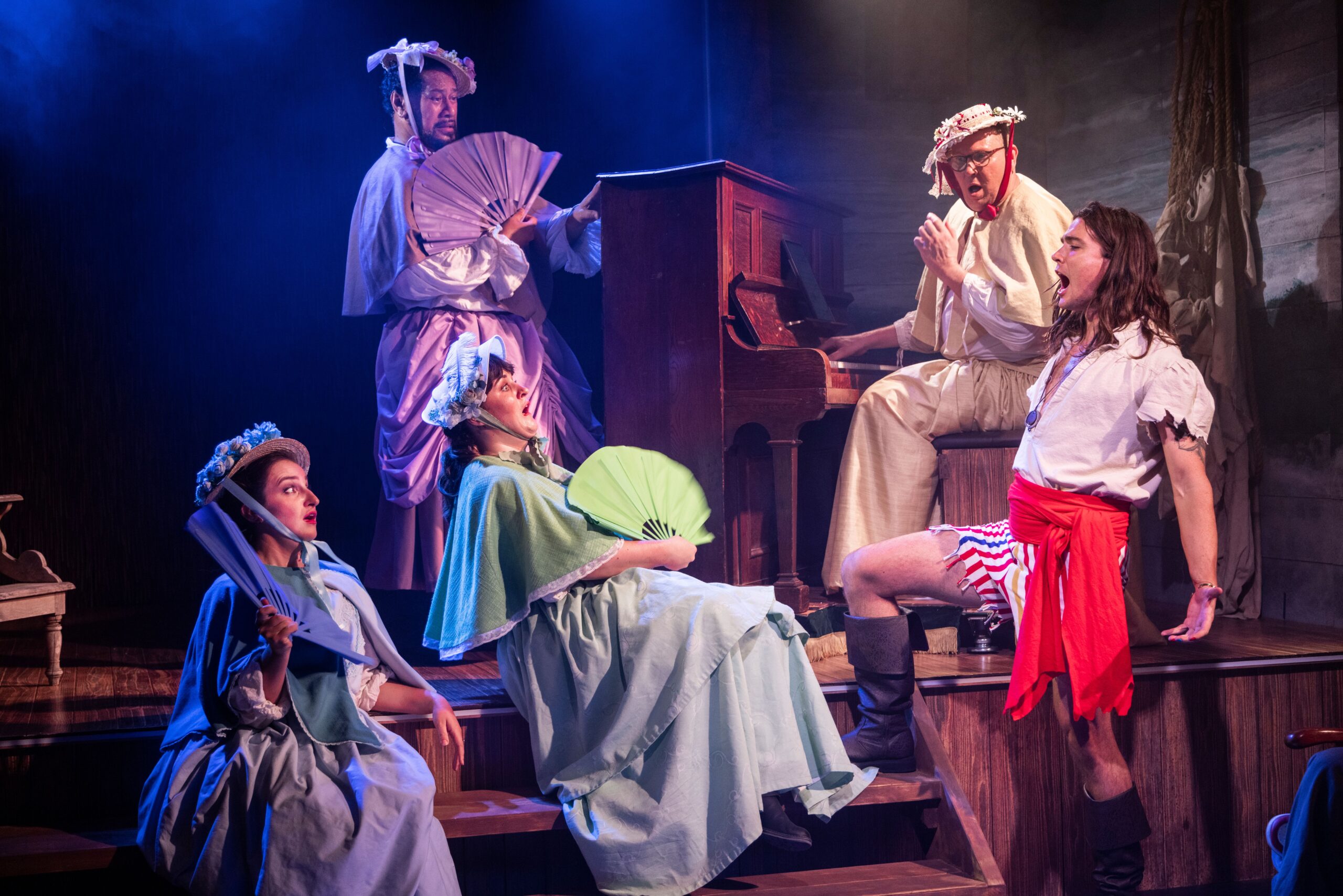Merrigong Theatre Company and re:group performance collective present a trailblazing fusion of theatre and technology. Coil, performing at Illawarra Performing Arts Centre from 26-29 July.
A tender elegy to the shutting of the neighbouring video store, Thirroul’s Leading Edge Video, Coil smudges the edges of theatre and film while compelling the audiences’ collective memories to commemorate the glory days of the video store and honour the communities made within them.
Re:group performance collective combine theatre and cinematography through their ingenious use of cameras and editing, to fashion an enveloping, hypnotic and irreverent production.
Steve Wilson-Alexander, the star and co-creator, alongside other re:group performance collective members, conferred with the owners of Leading Edge Video Thirroul, John and Marion Wallace, whilst in the process of designing their show to craft a one-of-a-kind performance that echoes the happiness, dangers and pitfalls of nostalgia and how to grapple with goodbyes.
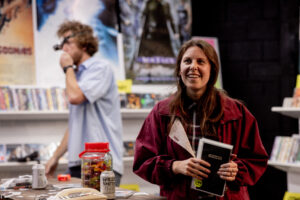
Interview with Steve:
SERENA: Could you start by telling me a bit about the show and how you came to create it?
STEVE: The show, Coil, it started when we created the show that we were really happy with called Route Dash Niner that was like a full-length Sci-Fi movie shot on-stage and the audience could watch the movie on the screen but also we were just making it live, like there was no pre-recorded it was all just cameras running in to the projector and we had to run around in real time and be in the right place at the right time for the next shot. We pitched that to venues and presenters to pick up the work and they were all like ‘oh, wow, it looks really interesting, but there are too many people in it. You’ll never be able to pay for a cast of 7 to travel around. It’s just too expensive.’ And, so, we came away from that and sort of said what if we made a show where one performer could play all of the characters using technology? So, that idea stuck with me and I wrote an application to the Network Festival in 2019 with this idea of ‘can one performer play all of the characters using a trick of the camera and perform one scene as one character and record and immediately play it back and you have to be the other character?’ and if that worked cinematically. And if it does work cinematically, what does that mean about movie acting and chemistry and all of that stuff and, also as a broader comment on reflecting human labour with technological counterparts. And, so, we worked on that show up until 2020 and it was cancelled because of COVID. We didn’t get to do it and it was around that time that we were doing development and thinking a lot about the video shop. My video shop in Thirroul was just closing down around that time, as well. May 2020. And we realised we wanted to tell that story as well. So, the show has grown into, sort of, talking about the video shop and the loss of the video shop, which is something that effects pretty much every community that either still has one but is on its last legs or in most cases is something you have just lost as a place you used to go for cultural nourishment and to immerse yourself in media and in comparing that to how difficult it is to keep making art as you grow up. About how in our early 20s we used to make art together with like 20 people running around together on stage and 10 years later there’s only 3 of us on stage. And, so, comparing the loss of those spaces that we used to have and at the same time we’ve developed – over the past 4 years, since 2019 when this idea started – the video design has also evolved. And, this is from our video designer, Solomon Thomas, has made a unique video design that allows us to shoot half of the movie in a certain order. So, as I’m telling the audience all about my story, I’m recording all of these shots and then in the middle of the show we press play and up on the big screen, we see all of those shots have now been reordered and so it looks like a movie that’s being played back and that just happens instantaneously. And, every second shot in that movie, actually cuts back to the live camera, so that I can, in real time, play back against myself. So, if you saw me saying hello in the first half, then I’m there playing a different character and I can say hello back to myself in the second half. And, so, the audience gets to watch a movie in the second half.
SERENA: Do you get to do any editing on stage?
STEVE: No, it’s all automatic. Part of Solomon’s video design is that he has a bunch of spreadsheets. And, so, as we gather the shots in the first half, they’re sort of without context, so the audience doesn’t really know what the shots are going to get used for later on. We gather all of those shots and then in the middle, Solomon has a quick look over at the computer to make sure everything works and then we press play and it’s automatic that they play back in a different order, one that makes cinematic sense. You know, starts with establishing a shot and we move to a short film that we’ve written as well. Mark Rogers, in particular – we all wrote it together but Mark really wrote the screenplay for the second half.
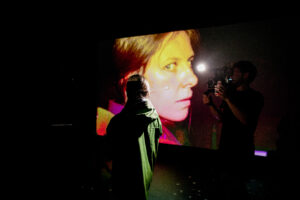
SERENA: Was there anything or anyone else, besides the video store, that inspired the creation of the show?
STEVE: There were a lot of things that ended up not being included in the show, we started with the video shop but as we were making it we, sort of, encountered all of these people that had similar ends like you know, as the video shop. And, when we bought our set – the set is a video shop and we’ve got 1200 DVDs, roughly, that we bought second-hand and we bought our shelves from a closing down bookstore in the CBD and that guy was going out of business because of COVID. He used to sell books to students, but because of COVID and the lack of international students he just went out of business. So, it felt like we were, sort of, telling his story as well when we incorporated the shelves into the sets. Our production manager for the show for that first one was Alistair Davies, who used to work at the university but also got made redundant at around that time. I also lost my job at around that time. So, there were a lot of different factors that were very relevant in the making of this show.
SERENA: Are there any hidden meanings in the show?
STEVE: We talk about nostalgia, once we start talking about DVD shops and missing them but the show is also a bit harsh on people who maybe get stuck in the past or who spend too much time there, particularly at the expense of relationships. So, what made those places special, the communities around them? And, so, we’re not just saying ‘video shops are great, bring them back’, I guess we’re asking ‘what did we lose when we got rid of video shops’ and ‘has that been adequately replaced?’ But also, we would like, in general, to have a deeper look at nostalgia. Well, nostalgia is everywhere, in a superficial way, but it doesn’t often have that interrogation of ‘why’, ‘what did it actually mean’ or ‘what was the actual important thing?’ And, I think it’s the relationships that we’ve lost which is the important thing and it’s not, you know, the image. The way DVDs or VHS look. The aesthetic from the 90s or the 80s, it’s the people that are important.
SERENA: Would you say, then, that you dislike the new technologies that have allowed us to have access to these movies at home and took away the video stores, or like the new technologies because it has allowed you to create your show?
STEVE: I don’t know whether I would have it one way or the other. I definitely miss video shops, I think they were something great in having to go out to get the video, which I guess is going to be inaccessible to some people, so I guess having streaming services – but I guess the main thing is that video stores also really changed and affected movies and film. It’s just an endless cycle. And, so, we’re really not saying that the video shop was the way it was meant to be because before that people were like ‘no, going to the movies together is the way it’s meant to be’. And, there are a lot of movies that won’t get put onto streaming sites and people will lose and I think that’s really sad. Just because they were too weird or too crap or too small to ever get uploaded, or there’ll be licensing issues. And, so, that’s a real shame to miss out on all these great, wonderful, weird movies that currently you can only watch on DVD and that would’ve happened when there was the change over from VHS as well. But, also, streaming sites being more accessible and people being able to watch things, I’m not necessarily against that, so, it’s a mix.
SERENA: Anything you would like to add?
STEVE: Yeah, just that we’re very proud of this show. We all came from University of Wollongong, that’s where re:group performance collective met and formed and also we’ve been on a national tour of this show. It’s a really new type of show, told in a really innovative and new way and it’s really fun and silly and upbeat. And, so, I’d really like people to come along if they can. Also, the show is going to be audio-described for any blind or visually impaired people who were thinking of coming and also AUSLAN-interpreted for any deaf audiences that are interested.

